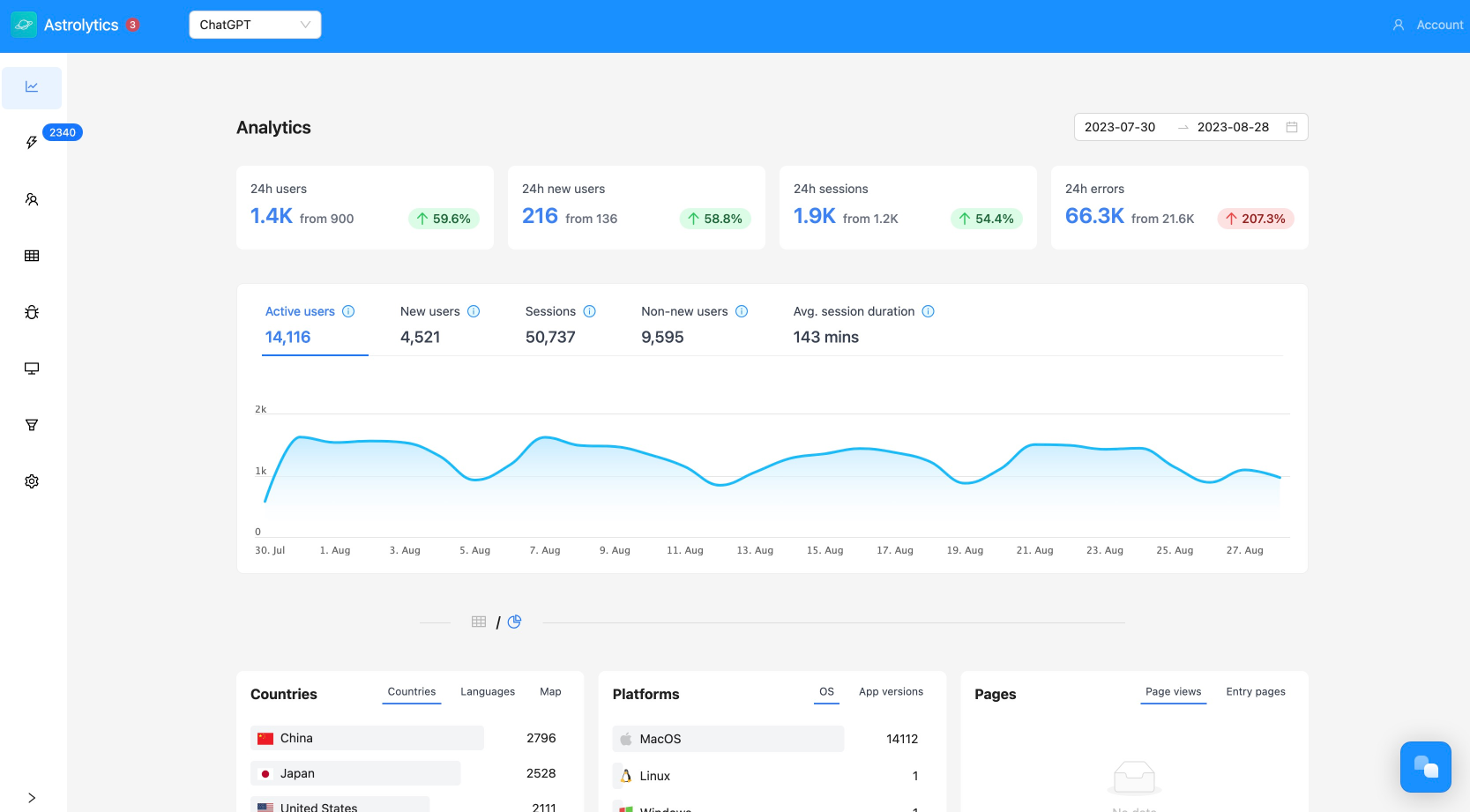August 2, 2023·ElectronDesktop
The best and most successful Electron apps created
A comprehensive list of the best, fastest-growing and most successful Electron.js apps born in the last decade and in the 2000s

There's an ongoing debate among developers about the Electron framework that swings like a pendulum between love and hate. On one side of the argument, Electron is often criticized for being resource-intensive, leading to the need to optimize startup times for applications and performance issues. This issue has been a persistent turn-off in the side for those who value performance and speed on their apps.
On the flip side, Electron's utility and flexibility cannot be overstated. It's harnessed by some of the most significant product organizations globally, supporting many of the most well-known apps we use every day. The key reason Electron becomes their go-to choice is its efficiency in decreasing the costs of cross-platform development. With Electron, developers can maintain a single codebase for applications running on different operating systems, saving significant time and resources and providing a consistent product experience across platforms.
This blog post will show the classic and well-known products using it, as well as zoom into the modern, successful and fast-growing apps that continue to rely on Electron, even amidst a range of emerging Electron alternatives. We will dive deep into the reasons that influence this decision, and how it has played out in their growth journey.
Even with emerging Electron alternatives such as Tauri promising leaner and faster applications, these apps are reafirming their commitment to Electron. They send out a strong signal to the developer community - if you are building a desktop application, Electron continues to be a compelling choice to consider.
Born in the 2010s 👶
Notion (Productivity)
Notion, born in 2013, is like a Swiss Army Knife for your notes, tasks, wikis, and databases. Why Electron? Notion wanted to keep things consistent across all platforms, and Electron made it possible. Notion had a bit of a reputation for being slow (probably due to Electron's weighty nature), but they turned things around. You can read about how they solved that here. Last we heard, Notion's valuation was about $10 billion, with about 30M active users.

Loom (Video Communication)
Loom started in 2015 and made waves with its instant video messaging. They've got a Chrome extension, web interface, tons of integrations, and they needed everything to work the same across the board. Plus, most Loom users are on desktop. That's why Electron was their pick. While they're not sharing their annual earnings, Loom's last known valuation was $1.5 billion.

Figma (Design)
Figma, established in 2012, is a design tool that lives in the cloud and loves collaboration. They picked Electron for their desktop app, even though it's known to hog resources. It helped them build a full-fledged app that works on any platform. Figma, alongside Slack and Microsoft, are big contributors to Electron, helping iron out issues that made their app run slow. Actually, they contributed BrowserView, a way to embed web apps with fewer bugs and improved performance. With 4M users, Adobe has agreed to acquire Figma for $20 billion. But this is not the highest valued company on this list… keep reading.

Bitwarden (Password Management)
Bitwarden, created in 2016, keeps your passwords safe and encrypted. They went with Electron for their desktop app because they were a growing startup that needed a simple way to offer a good desktop experience, with a mixed balance between mobile, web and desktop users using them. They haven’t revealed their valuation, but is estimated between $500 millions and $1 billion considering their last $100M fundraising round.

Postman (API Development Tools)
Postman popped up in 2014, making API development easier for developers. They went with Electron for their desktop app (Postman Agent) to overcome limitations like Cross-Origin Resource Sharing (CORS) that you'd typically face with browser versions. Here’s more about why desktop is important for them. They're doing well, with a last reported valuation of ~$6 billion.

Miro (Collaborative Whiteboard)
Miro entered the scene in 2011, offering a digital whiteboard that lets teams bring their ideas to life. They chose Electron because, as a visual tool, it was crucial to use web technologies for the best user experience. With an estimated revenue of $150-300M, Miro's last reported valuation was an outstanding $17.5B.

Slack (Collaboration)
Launched in 2013, Slack is a hub for team collaboration that replaces email inside your company. Slack, as of the last update, had an impressive annual revenue of ~$902 million and not very new news, but was acquired by Salesforce for almost $28B 😳

Signal (Private Messaging)
Signal, launched in 2014, offers a highly secure private messaging experience. They prioritized user privacy and security from the get-go. Though Signal is free and supported by donations and grants, it has seen significant growth in user base, especially in recent years, boasting about 40M monthly active users.

Visual Studio Code (Code Editor)
Visual Studio Code, created by Microsoft in 2015, is a free source-code editor. Developers love it for its speed, ease of use, and powerful features. It’s designed to be a streamlined code editor with support for development operations like debugging, task running, and version control. It was built using Electron which allows it to run smoothly on any platform (macOS, Linux, Windows).

Microsoft Teams (Team Collaboration)
Launched in 2017, Microsoft Teams is the hub where teamwork happens. It brings chat, meetings, calling, and collaboration with apps into a shared workspace. What’s interesting here is that even Microsoft, which you would assume would incline to native, are using Electron for some of its softwares to bring a smooth experience over many operating systems. As of the last update, Microsoft Teams, as a part of Microsoft 365 suite, reported over 250 million monthly active users.
Born in the 2000s 👴
Asana (Work Management)
Back in 2008, the Asana team set out to create a platform that makes managing work easier for teams. Asana is all about the details - from tiny tasks to big initiatives, it's got you covered. And why did they go with Electron for their desktop app? Asana is a pretty dynamic app with lots of complex visuals. To make sure it runs smoothly both on the web and desktop platforms like Windows and macOS, Electron was the way to go. They are generous sharing about their tech stack used, which can be found here. Asana is the oldest company on the list and now a public company ($ASAN) with a market value of ~$5B and is making ~$550M/yr in revenue.

Skype (Video communication)
Skype, one of the pioneers in video communication, was established in 2003. It provides video chat and voice call services, along with instant messaging. As a part of Microsoft's portfolio, Skype reportedly has more than 40 million daily active users. Not bad for a 20 year old product!

Github (Software Development Platform)
Github, a software development platform, was launched in 2008. It allows developers to work together, host and review code, manage projects, and build software. Github actually created Electron, so it's no surprise they use it for their desktop application, Github Desktop. With millions of users worldwide, Github was acquired by Microsoft in 2018 for $7.5 billion.

Conclusion
In conclusion — some of the biggest multi-billion professional software companies were built on top of Electron, so yes, you can build a valuable business even with its downsides of being a resource hog. So you should not worry too much about performance, but about making something people really want first.

